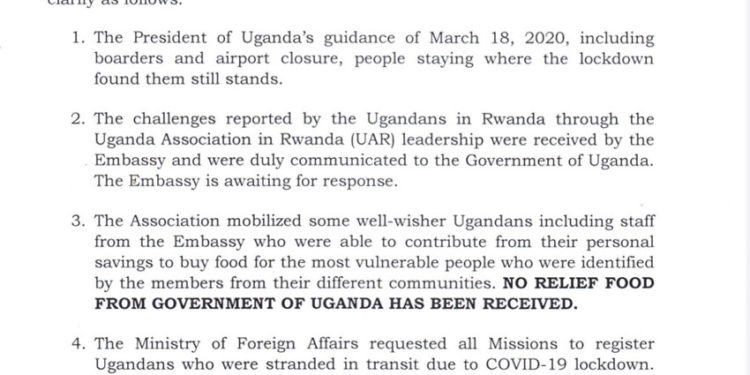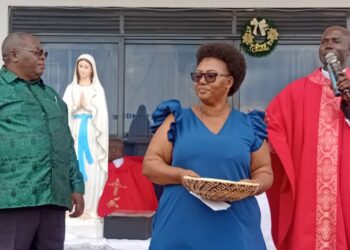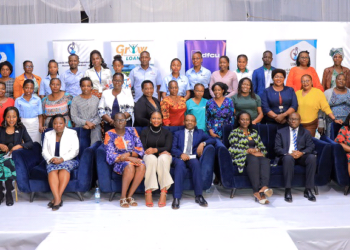Ugandan teachers who were working in Rwanda have cried for help from Uganda’s High Commission in Kigali, seeking to come back home after their contracts were terminated.
According to the letter that was published by the Uganda High Commission in Kigali-Rwanda that was released on May 1st 2020, their concerns have been submitted to Kampala for possible consideration.
“Ugandans, mainly teachers who have had their contracts terminated are requiting to go back home. Since the mission does not have powers of opening border, their concerns have been submitted to Kampala for consideration.” Uganda High commission said in a letter.
The Uganda Association in Rwanda (UAR) has been able to buy food to the vulnerable Ugandans who are now stranded in Kigali due to the Covid-19 lock down, according to the mission.
Rwanda has recorded 255 coronavirus cases and as a result, she has put up stringent measures to contain the spread of this deadly pandemic.
Uganda also closed all her borders after the breakout of the pandemic, to stem its spreading. Uganda has recorded 88 cases.
The demand for Anglophone instructors in teacher training colleges and teachers of English in primary and secondary schools was prompted by Rwanda in 2013 after a cabinet decision to have English as the only medium of instruction in schools.
This led to Ugandan teachers flocking to Rwanda to teach English and other related subjects.
Rwanda was previously using French language as a medium of instruction in schools.
However, when Uganda/Rwanda relations turned bitter in February 2019, some of the teachers fled Kigali but others had to stay. Those who stayed there have been badly affected by the coronavirus lockdown and have demanded to go back to their home country.
After the breakout of coronavirus in the world that caused lock down, Uganda’s Foreign Ministry requested all Missions to register all Ugandans stranded due to coronavirus lockdown.
The coronavirus disease has killed more than 244,000 people and infected some 3.44 million, according to data compiled by Johns Hopkins University. More than 1.1 million people have recovered.
Do you have a story in your community or an opinion to share with us: Email us at editorial@watchdoguganda.com













